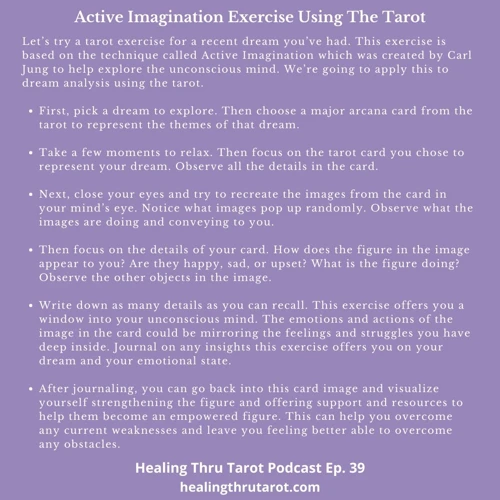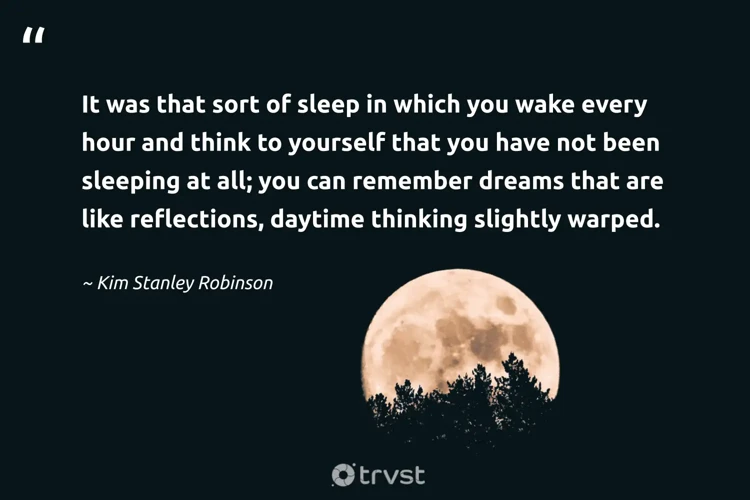Examining Insomnia as a Potential Barrier to Dreamwork and Spiritual Growth

Dreamwork and spiritual growth are deeply interconnected, supporting one another on the path of personal transformation and self-discovery. However, the presence of insomnia can pose significant challenges to both these endeavors. Insomnia, a sleep disorder characterized by difficulty falling asleep or staying asleep, can disrupt sleep patterns, hinder dream recall, and impede the exploration of the subconscious mind. Insomnia can hinder spiritual growth by limiting the role of dreams in spiritual development and obstructing the path to spiritual enlightenment. In this comprehensive article, we will delve into the definition and causes of insomnia, the impacts of insomnia on dreamwork, and its consequences for spiritual growth. Additionally, we will explore practical strategies and techniques to overcome insomnia and unlock the power of dreams for personal and spiritual advancement.
The Importance of Dreamwork and Spiritual Growth
Dreamwork and spiritual growth play vital roles in individual well-being and personal evolution. Dreamwork involves the exploration and interpretation of dreams, which can offer valuable insights into our subconscious thoughts, emotions, and desires. Through dream analysis, we can uncover hidden meanings, unresolved issues, and gain a deeper understanding of ourselves. Dreams often serve as a gateway to the spiritual realm, allowing us to connect with higher consciousness and receive guidance from the divine. Spiritual growth, on the other hand, encompasses the journey of self-discovery, self-realization, and connecting with our higher selves or the universal energy. It involves developing qualities such as mindfulness, compassion, and wisdom, leading to inner peace and enlightenment. Dreamwork and spiritual growth are intimately linked, as dreams can provide messages from the spiritual realm, aid in spiritual lessons and transformation. By recognizing and exploring the symbolism and messages within our dreams, we can uncover profound insights and experiences that enhance our spiritual growth and understanding. This connection between dreamwork and spiritual growth highlights the significance of delving into our dreamscape and harnessing its power for self-discovery and spiritual evolution.
Understanding Insomnia

Insomnia is a sleep disorder that can have a significant impact on an individual’s overall well-being and quality of life. It is characterized by persistent difficulty falling asleep or staying asleep, despite having the opportunity for adequate rest. Understanding the causes and effects of insomnia is essential in addressing its potential barriers to dreamwork and spiritual growth.
Insomnia can be classified into two primary types: acute and chronic. Acute insomnia refers to short-term sleep disturbances often caused by stress, jet lag, or specific life events. On the other hand, chronic insomnia is characterized by ongoing sleep difficulties that last for a month or longer and can be linked to factors such as medical conditions, mental health disorders, certain medications, or poor sleep hygiene practices.
Common causes of insomnia include:
1. Anxiety and Stress: Elevated levels of stress or anxiety can lead to a racing mind, making it challenging to relax and fall asleep.
2. Disrupted Sleep Schedule: Irregular sleep patterns or inconsistent bedtime routines can disrupt the body’s natural sleep-wake cycle, contributing to insomnia.
3. Environmental Factors: Noise, uncomfortable temperature, or an unsupportive mattress and pillow can interfere with falling or staying asleep.
4. Medical Conditions: Conditions such as chronic pain, respiratory disorders, gastrointestinal issues, or hormonal imbalances can contribute to insomnia.
5. Mental Health Disorders: Insomnia is closely associated with mental health disorders, including depression, anxiety, post-traumatic stress disorder (PTSD), and bipolar disorder.
6. Medications: Certain medications, such as antidepressants, stimulants, or medications for hypertension, may have side effects that interfere with sleep.
Insomnia disrupts normal sleep patterns, leading to a variety of sleep disturbances. These sleep disturbances can include difficulty falling asleep (sleep onset insomnia), frequent awakenings throughout the night (sleep maintenance insomnia), or waking up too early and being unable to fall back asleep (early morning awakening insomnia). As a result, individuals with insomnia often experience sleep deprivation, which can have detrimental effects on physical, mental, and emotional well-being.
Sleep deprivation can cause daytime drowsiness, fatigue, difficulty concentrating, irritability, and an increased risk of accidents and errors. It can also impair cognitive function, memory retention, and decision-making abilities. Sleep deprivation can impact mood regulation, resulting in increased feelings of anxiety, depression, and overall emotional instability.
Insomnia not only disrupts sleep patterns but can also create a barrier to engaging in dreamwork and spiritual growth. The next sections will delve deeper into how insomnia interferes with these essential aspects of personal development and offer strategies to overcome these challenges.
Definition and Causes of Insomnia
Insomnia is a sleep disorder characterized by persistent difficulty falling asleep, staying asleep, or experiencing restful sleep. It can manifest in various ways, including difficulty initiating sleep, frequent awakenings during the night, or waking up too early in the morning. Insomnia can be acute, lasting for a short period, or chronic, persisting for a prolonged duration. The causes of insomnia can be multifaceted and vary from person to person. Stress, anxiety, and depression are common psychological factors that can contribute to insomnia. Physical health conditions such as chronic pain, hormonal imbalances, and respiratory disorders can also disrupt sleep. Lifestyle factors such as irregular sleep schedules, excessive consumption of caffeine or alcohol, and poor sleep hygiene practices can exacerbate insomnia. Additionally, certain medications and substances, such as stimulants or certain antidepressants, can interfere with sleep patterns. The link between insomnia and dreams is significant, as sleep disturbances can lead to a decline in dream recall and disrupt the overall quality of dreams. Understanding the definition and causes of insomnia is crucial in addressing and mitigating its impact on dreamwork and spiritual growth. For more information on the relationship between insomnia and dreams, you can explore our article on insomnia and dream disturbances.
The Effects of Insomnia on Sleep Patterns
Insomnia has a profound impact on sleep patterns, leading to significant disruptions in the quantity and quality of sleep. Those who experience insomnia often struggle to fall asleep or stay asleep, resulting in fragmented sleep patterns and overall sleep deprivation. This sleep disturbance can cause individuals to experience difficulties entering into deeper stages of sleep, such as REM (rapid eye movement) sleep, which is closely associated with dreaming. REM sleep is essential for the formation and recall of dreams, as well as the processing of emotions and memories. Insomnia disrupts the natural progression of sleep cycles, causing individuals to spend less time in restorative REM sleep and more time in lighter stages of sleep or wakefulness. This disruption can lead to decreased dream recall and a diminished overall dreaming experience. Insomnia can result in increased awakenings during the night, further interrupting the natural flow of sleep and dream cycles. These interruptions can weaken the connection between dream experiences and conscious memory, making it more challenging to recall and engage with dreams upon awakening. The link between insomnia and sleep patterns highlights the importance of addressing and managing insomnia to support healthy and rejuvenating sleep, and ultimately, to enhance dreamwork and spiritual growth. Check the link /insomnia-recurring-dreams/ for more information on the relationship between insomnia and recurring dreams.
Insomnia as a Barrier to Dreamwork

Insomnia can present itself as a significant barrier to effective dreamwork. Insomnia refers to the inability to fall asleep or stay asleep, resulting in sleep disturbances and inadequate rest. This sleep disorder disrupts the natural sleep cycle, including the stages of deep sleep and rapid eye movement (REM) sleep, which is essential for dreaming. As a result, individuals with insomnia often experience difficulties in recalling their dreams. Reduced dream recall is a common symptom of insomnia, preventing individuals from accessing the valuable messages and symbolic meanings that dreams carry. Dreams serve as a means of communication from our subconscious mind, offering insights, resolutions, and even prophetic experiences. With insomnia hindering dream recall, individuals may miss out on opportunities for self-reflection, personal growth, and spiritual connections that dreams provide. The quality of dreams can also be compromised due to sleep deprivation caused by insomnia. The lack of sufficient and uninterrupted sleep disrupts the intricate balance of brain functions during REM sleep, leading to fragmented and less vivid dreams. The incomplete and disjointed nature of these dreams makes it challenging to extract meaningful interpretations or engage in productive dreamwork. Insomnia can further hinder dreamwork by making it difficult to connect with the subconscious mind. Dreams act as a conduit to our deepest thoughts, desires, and emotions residing beneath our conscious awareness. Without sufficient restful sleep, individuals may find it harder to access the subconscious realm and tap into its transformative potential. The barrier created by insomnia impedes the exploration of the self and limits the opportunity for profound self-discovery and spiritual growth that dreamwork offers. To overcome these barriers, it is crucial to address and manage insomnia effectively, allowing individuals to regain restful sleep and reconnect with the realm of dreams. For more information on the relationship between insomnia and the prophetic nature of dreams, please refer to our previous article on insomnia and prophetic dreams.
How Insomnia Disrupts Dream Recall
Insomnia, with its disruptive effects on sleep patterns, can significantly impede the process of dream recall. When individuals with insomnia struggle to fall asleep or experience frequent awakenings throughout the night, it becomes more challenging to reach the rapid eye movement (REM) sleep stage, which is when the majority of dreams occur. REM sleep is crucial for vivid and memorable dreams. Without adequate time spent in this stage, dream recall becomes limited, making it difficult to remember and interpret dreams. The fragmented sleep caused by insomnia can cause a disjointed narrative of dreams, leading to a lack of coherence and clarity. Additionally, sleep disturbances can interrupt the natural sleep cycle, leaving individuals feeling groggy and fatigued upon waking, further hindering their ability to recall dreams accurately. Insomnia’s interference with dream recall can be frustrating, as dreams hold valuable messages, symbols, and insights that can aid in personal growth and self-discovery. It is important for individuals with insomnia to address their sleep issues in order to restore healthy sleep patterns and enhance their capacity for vivid dream recall.
The Impact of Sleep Deprivation on Dream Quality
Sleep deprivation, caused by insomnia, can significantly impact the quality of dreams experienced. When we lack sufficient sleep, our brain’s ability to enter and maintain the deep stages of sleep is compromised. These stages, such as Rapid Eye Movement (REM) sleep, are crucial for vivid and meaningful dreaming. REM sleep is characterized by increased brain activity, including vivid imagery, emotional content, and heightened dream recall. However, sleep deprivation disrupts this natural sleep cycle, leading to shorter durations of REM sleep. As a result, dreams may become fragmented, hazy, and lacking in detail. The emotional depth and clarity of dream experiences may also diminish, making it harder to interpret and extract valuable insights from dreams. Additionally, sleep deprivation can lead to a higher likelihood of experiencing nightmares, which are often intense and distressing dreams associated with negative emotions and anxiety. These nightmares can further hinder the overall quality of sleep and the ability to engage in productive dreamwork. The impact of sleep deprivation on dream quality underscores the importance of addressing and managing insomnia to ensure restful sleep and enhance dream recall and interpretation.
Difficulty Connecting with the Subconscious Mind
Connecting with the subconscious mind is a crucial aspect of dreamwork and spiritual growth, as it allows us to access deeper layers of our psyche and tap into our intuition and inner wisdom. However, individuals with insomnia often face challenges in establishing this connection due to the disrupted sleep patterns and lack of restorative sleep. The subconscious mind, which is more active during the dream state and during deep sleep, serves as a bridge between the conscious and spiritual realms. It holds valuable insights, emotions, and memories that can aid in personal growth and spiritual development. Insomnia disrupts this connection by limiting the amount of time spent in deep sleep and REM sleep, the stage of sleep associated with vivid dreams and profound subconscious experiences. As a result, individuals may struggle with dream recall or have fragmented and disjointed dreams, making it difficult to access the rich symbolism and messages that dreams offer. Additionally, sleep deprivation caused by insomnia can lead to cognitive impairment, making it harder to quiet the conscious mind and enter a meditative or trance-like state necessary for spiritual practices. Overcoming insomnia and establishing a healthy sleep routine can help individuals reconnect with their subconscious mind and facilitate dreamwork and spiritual growth.
Insomnia and Spiritual Growth

Insomnia can have a detrimental impact on spiritual growth and personal evolution. Sleep disturbances caused by insomnia can disrupt the natural sleep-wake cycle, resulting in chronic sleep deprivation. This lack of adequate sleep can lead to physical and mental fatigue, impairing cognitive functioning and emotional well-being. The consequences of insomnia extend beyond the physical realm and seep into the realm of spiritual growth. Sleep deprivation hinders the ability to attune to higher states of consciousness and connect with the divine. It can make it challenging to engage in spiritual practices such as meditation, mindfulness, and energy work. The disrupted sleep patterns and depleted energy levels caused by insomnia prevent individuals from experiencing a deep sense of inner peace and harmony, which are essential for spiritual growth. Additionally, insomnia can create a barrier to accessing the wisdom and guidance that dreams often provide in the journey towards spiritual enlightenment. Dreams serve as a powerful channel for spiritual insights, visions, and prophetic messages. However, the impact of insomnia on dream recall and dream quality can limit access to these valuable spiritual experiences. Addressing and overcoming insomnia is crucial for those seeking to foster spiritual growth and delve into the depths of their spiritual journey.
The Role of Dreams in Spiritual Development
The Role of Dreams in Spiritual Development
Dreams have long been regarded as a powerful tool for spiritual development. They offer a unique access point to our subconscious mind and the spiritual realm, providing a channel for divine messages, guidance, and insights. The significance of dreams in spiritual development can be seen throughout history and across various cultures.
1. Revelation and Guidance:
Dreams have often been associated with revelations and divine guidance. Many spiritual leaders and mystics have reported receiving profound insights and spiritual teachings through their dreams. These insights can offer guidance on personal growth, life choices, and a deeper understanding of the self and the universe.
2. Symbolism and Metaphor:
Dreams often communicate in symbols and metaphors, bypassing the logical mind and tapping into a deeper level of understanding. These symbolic representations can have profound spiritual meaning and can reveal hidden aspects of our psyche and spiritual journey.
3. Connection with Higher Consciousness:
During sleep, when our conscious mind is at rest, we can connect more easily with higher consciousness. This allows us to tap into universal wisdom and receive spiritual guidance that can aid in our personal and spiritual growth.
4. Healing and Integration:
Dreams can also support the process of healing and integration. They can bring to the surface repressed emotions, unresolved issues, and unconscious patterns that need to be acknowledged and processed. By working with the symbols and messages in our dreams, we can bring about healing, self-acceptance, and transformation.
5. Spiritual Lessons and Insights:
Through dreams, we may receive valuable spiritual lessons and insights that help us navigate our spiritual path. These lessons can deepen our understanding of divine principles, universal laws, and the interconnectedness of all things.
Dreams serve as a bridge between our conscious waking life and the spiritual realm. They provide opportunities for growth, self-reflection, and spiritual expansion. By paying attention to our dreams, interpreting their symbolism, and honoring their messages, we can accelerate our spiritual development and embark on a journey of self-discovery and enlightenment.
Obstacles to Spiritual Enlightenment Caused by Insomnia
Insomnia can present significant obstacles to achieving spiritual enlightenment. This sleep disorder disrupts the natural sleep-wake cycle, leading to sleep deprivation and various physical and mental challenges that hinder spiritual growth. Here are some of the obstacles caused by insomnia:
1. Lack of Energy and Focus: Sleep deprivation caused by insomnia can result in fatigue, decreased energy levels, and difficulty concentrating. This lack of physical and mental energy makes it challenging to engage in spiritual practices such as meditation or mindfulness, which require focus and presence.
2. Emotional Instability: Insomnia can contribute to emotional instability, mood swings, and increased irritability. These emotional disturbances make it harder to maintain a peaceful and balanced state of mind necessary for spiritual growth.
3. Impaired Intuition and Connection: Sleep deprivation can disrupt the intuitive abilities and hinder the connection with the spiritual realm. Intuition plays a crucial role in spiritual development as it helps individuals navigate their spiritual journey and make aligned decisions. Insomnia can diminish these innate abilities, limiting the potential for spiritual growth.
4. Disrupted Sleep Patterns: Insomnia disrupts the natural sleep patterns, which can impact dream recall and hinder the exploration of dreams for spiritual insights. Dreams often carry symbolic messages and guidance from the subconscious and the divine. When insomnia impairs dream recall, individuals may miss out on valuable spiritual experiences and insights.
Overcoming insomnia is essential to remove these obstacles and nurture spiritual growth. By addressing sleep disturbances and finding ways to promote quality sleep, individuals can enhance their ability to engage in spiritual practices, connect with their inner selves, and experience profound spiritual growth.
Strategies to Overcome Insomnia for Dreamwork and Spiritual Growth
Insomnia can be a significant barrier to both dreamwork and spiritual growth, but there are effective strategies that can help overcome this sleep disorder. One crucial approach is establishing a consistent sleep routine and practicing good sleep hygiene. This includes maintaining a regular sleep schedule, creating a calming bedtime routine, and ensuring a comfortable sleep environment. By adopting these practices, the body and mind become conditioned to associate these actions with sleep, promoting better sleep quality and reducing insomnia.
Another strategy is to explore various relaxation and meditation techniques. Practices such as deep breathing exercises, progressive muscle relaxation, and guided imagery can help relax the mind and body, making it easier to fall asleep. Meditation, in particular, can be a powerful tool for clearing the mind, reducing stress, and promoting a state of relaxation conducive to sleep.
Additionally, it’s important to review and adjust sleep environment and habits that may contribute to insomnia. This may involve optimizing the bedroom for sleep by ensuring it is dark, quiet, and at a comfortable temperature. Avoiding stimulants like caffeine and electronics before bedtime can also promote better sleep.
In some cases, alternative approaches and therapies can provide relief from insomnia. These may include techniques like acupuncture, aromatherapy, or herbal remedies that have shown promise in promoting relaxation and sleep. However, it’s essential to consult with healthcare professionals before trying any alternative treatments.
Implementing these strategies can help overcome the obstacles posed by insomnia, allowing individuals to engage in dreamwork and spiritual growth more effectively. By prioritizing sleep, relaxation, and creating supportive conditions for restful nights, individuals can reclaim the power of their dreams and make progress on their spiritual journey.
Establishing a Sleep Routine and Sleep Hygiene Practices
Establishing a consistent sleep routine and adopting good sleep hygiene practices is crucial for overcoming insomnia and facilitating effective dreamwork and spiritual growth. Consistency is key when it comes to sleep, so aim to go to bed and wake up at the same time every day to regulate your body’s internal clock. This helps train your brain to associate those times with sleep, making it easier to fall asleep and stay asleep. Additionally, create a relaxing bedtime routine to signal to your body and mind that it’s time to wind down. This can include activities like taking a warm bath, practicing gentle stretching or yoga, reading a book, or listening to soothing music. Avoid stimulating activities and electronics, especially close to bedtime, as the blue light emitted by screens can interfere with melatonin production, making it harder to fall asleep. Creating a calm and comfortable sleep environment is also essential. Ensure your bedroom is dark, quiet, and at a comfortable temperature. Consider using earplugs, an eye mask, or white noise machines if necessary. Pay attention to your mattress and pillows, ensuring they provide adequate support and comfort. Additionally, establish sleep hygiene practices such as avoiding caffeine and heavy meals close to bedtime, limiting daytime naps, and engaging in regular physical activity. By incorporating these practices into your daily routine, you can create the optimal conditions for restful sleep, enhance dream recall, and promote spiritual growth through deeper and more meaningful dream experiences.
Exploring Meditation and Relaxation Techniques
Exploring meditation and relaxation techniques can be highly beneficial for individuals struggling with insomnia and seeking to enhance their dreamwork and spiritual growth. Meditation is a practice that involves focusing the mind and achieving a state of deep relaxation and heightened awareness. By incorporating meditation into our daily routine, we can calm the mind, reduce stress, and promote better sleep. This, in turn, can contribute to improved dream recall and the ability to access and interpret our dreams more effectively. There are various meditation techniques that can be explored, such as mindfulness meditation, guided visualization, and loving-kindness meditation. Each technique offers its own unique benefits, but all share the goal of quieting the mind, promoting relaxation, and fostering a connection with our inner selves. Similarly, relaxation techniques like deep breathing exercises, progressive muscle relaxation, and aromatherapy can help induce a state of relaxation, alleviate anxiety, and prepare the body and mind for restful sleep. By incorporating these techniques into our bedtime routine or whenever we feel overwhelmed, we can create a relaxing environment that supports optimal sleep and enhances our dream experiences. Through regular practice of meditation and relaxation techniques, we can cultivate a sense of inner peace, reduce insomnia symptoms, and create an optimal environment for meaningful dreamwork and spiritual growth.
Reviewing and Adjusting Sleep Environment and Habits
When it comes to overcoming insomnia and improving sleep quality, reviewing and adjusting your sleep environment and habits can make a significant difference. Start by creating a relaxing and conducive sleep environment. Keep your bedroom cool, dark, and quiet. Consider using blackout curtains, earplugs, or white noise machines to block out any disturbances. Make sure your mattress and pillows are comfortable and supportive. Remove any electronic devices or sources of blue light from the bedroom, as they can disrupt your sleep-wake cycle. Establish a consistent sleep schedule by going to bed and waking up at the same time each day, even on weekends, to regulate your body’s internal clock. Prioritize winding down before bed by engaging in calming activities such as reading, taking a warm bath, or practicing relaxation techniques like deep breathing or meditation. Avoid stimulating substances like caffeine, nicotine, and alcohol close to bedtime, as they can interfere with sleep. Create a bedtime routine that signals to your body that it’s time to sleep, such as listening to soothing music or practicing gentle stretching exercises. By reviewing and adjusting your sleep environment and habits, you can create an optimal sleep environment that promotes relaxation and aids in overcoming insomnia, allowing for improved dreamwork and spiritual growth.
Alternative Approaches and Therapies for Insomnia Relief
Alternative approaches and therapies can provide effective relief for individuals struggling with insomnia. These methods offer a holistic and natural approach to improving sleep quality and combating insomnia. Here are some alternative approaches and therapies that can be beneficial:
1. Acupuncture: This traditional Chinese medicine technique involves the insertion of thin needles into specific points on the body. It has been found to promote relaxation, reduce anxiety, and improve sleep quality.
2. Herbal remedies: Certain herbs have been used for centuries to promote relaxation and sleep. Examples include chamomile, valerian root, lavender, and passionflower. These herbs can be consumed as teas, supplements, or used in aromatherapy.
3. Cognitive-behavioral therapy for insomnia (CBT-I): This approach focuses on identifying and changing negative thoughts and behaviors that contribute to insomnia. It typically involves techniques such as relaxation training, sleep restriction, and implementing a consistent sleep schedule.
4. Yoga and meditation: These mind-body practices promote relaxation, reduce stress, and improve sleep quality. Practicing gentle yoga poses and engaging in mindfulness meditation before bed can help calm the mind and prepare the body for sleep.
5. Light therapy: This therapy involves exposure to bright light, which can help regulate the body’s internal clock and improve sleep-wake cycles. Light therapy is particularly effective for individuals with circadian rhythm disorders or seasonal affective disorder.
6. Exercise: Engaging in regular physical activity can help reduce insomnia symptoms. However, it is important to avoid exercising too close to bedtime, as it can have an energizing effect.
7. Relaxation techniques: Techniques such as progressive muscle relaxation, deep breathing exercises, and guided imagery can help induce relaxation and prepare the body for sleep.
It is important to consult with a healthcare professional or alternative medicine practitioner before trying any of these approaches to ensure they are suitable for your specific needs. These alternative approaches and therapies offer potential solutions for individuals seeking relief from insomnia and can help facilitate better sleep and ultimately support dreamwork and spiritual growth.
Conclusion
In conclusion, insomnia can be a significant barrier to both dreamwork and spiritual growth. The inability to achieve restful sleep and the resultant sleep disturbances can hinder our ability to recall and interpret dreams. This, in turn, limits our access to valuable insights from our subconscious mind and blocks our path to self-discovery and spiritual development. Furthermore, sleep deprivation caused by insomnia can impact the quality of our dreams and diminish their spiritual significance. It can obstruct our ability to connect with our higher selves and the spiritual realm. However, there are strategies to overcome insomnia and mitigate its effects on dreamwork and spiritual growth. By establishing a consistent sleep routine, practicing good sleep hygiene, and exploring relaxation techniques such as meditation, we can improve sleep quality and increase the likelihood of remembering and understanding our dreams. It is also important to review and adjust our sleep environment and habits to create a conducive atmosphere for restful sleep. Additionally, alternative approaches and therapies such as herbal remedies or cognitive-behavioral therapy can provide relief for insomnia symptoms. By addressing and overcoming insomnia, we can unlock the potential of dreamwork and spiritual growth, tapping into a powerful source of self-awareness, guidance, and enlightenment.
Frequently Asked Questions
FAQs about Examining Insomnia as a Potential Barrier to Dreamwork and Spiritual Growth
Q: Can insomnia really hinder dreamwork and spiritual growth?
A: Yes, insomnia can disrupt sleep patterns, inhibit dream recall, and make it challenging to connect with the subconscious mind, which can hinder dreamwork and spiritual growth.
Q: What is the impact of insomnia on dream quality?
A: Insomnia can lead to sleep deprivation, which can result in fragmented and shallow sleep, ultimately affecting the quality and depth of dreams.
Q: How does insomnia affect the interpretation of dreams?
A: Insomnia can make it harder to recall dreams, making it difficult to analyze and interpret their symbolism and messages for personal growth and spiritual insight.
Q: Can insomnia affect the role of dreams in spiritual development?
A: Yes, insomnia can limit the importance of dreams in spiritual development by reducing the ability to receive spiritual guidance and insights through dreams.
Q: Are there any specific obstacles to spiritual enlightenment caused by insomnia?
A: Insomnia can create obstacles to spiritual enlightenment by depriving individuals of deep restorative sleep, which is essential for spiritual practices and connecting with higher consciousness.
Q: How can establishing a sleep routine help overcome insomnia?
A: Establishing a consistent sleep routine helps regulate the body’s internal clock, promotes relaxation, and trains the mind and body to prepare for restful sleep.
Q: What are some relaxation techniques that can aid in overcoming insomnia?
A: Practices such as meditation, deep breathing exercises, progressive muscle relaxation, and guided imagery can all help promote relaxation and better sleep for individuals with insomnia.
Q: What factors should I review and adjust in my sleep environment to combat insomnia?
A: Factors such as noise levels, lighting conditions, room temperature, comfort of bedding, and minimizing electronic devices in the bedroom can all contribute to improving sleep and reducing insomnia.
Q: Are there alternative approaches and therapies that can provide relief for insomnia?
A: Yes, alternative therapies such as acupuncture, herbal supplements, cognitive-behavioral therapy for insomnia (CBT-I), and aromatherapy have shown promise in managing and alleviating insomnia symptoms.
Q: Can insomnia be a sign of underlying spiritual or emotional issues?
A: In some cases, insomnia may be a manifestation of underlying spiritual or emotional issues, highlighting the importance of addressing these aspects alongside sleep difficulties for holistic well-being.








